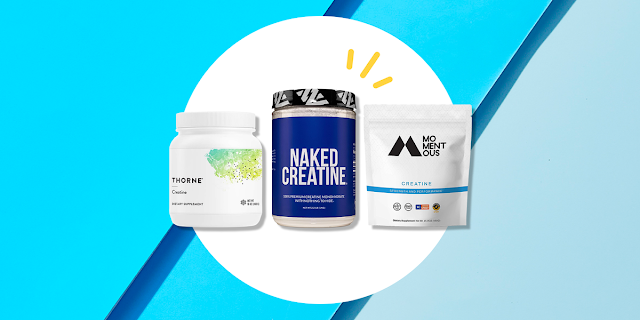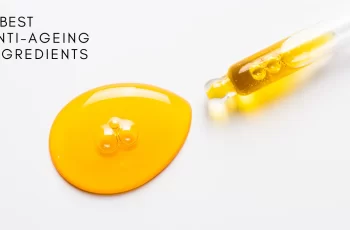
Can retinol and hydroquinone be used together?
If you’ve been around for a while, you’ve probably heard me talk about how retinol is one of the most powerful ingredients in skincare. Today, I want to introduce you to a lesser-known but extremely effective ingredient that some consider to be a heavyweight in the beauty industry: hydroquinone.
I know this may sound daunting, but hopefully after reading today’s content, you’ll be a little more clear and you’ll have the answer to your question of whether or not you can use retinol and hydroquinone together. But first, let’s take a quick look at the skincare benefits of using hydroquinone and retinol together in your skincare routine.
What is hydroquinone?
Hydroquinone is an effective skin lightener used to treat areas of hyperpigmentation on the surface of the skin. It is known to bleach the skin by blocking the production of melanocytes, the molecules that produce melanin, which is responsible for skin color.
After having a rather controversial history, especially in the 1980s when its safety was questioned, it is now considered safe to use. You’ll find hydroquinone in a variety of prescription or over-the-counter products. While these formulas are generally well tolerated by many people, hydroquinone is known to increase dryness and irritation in dry or sensitive skin. Therefore, always consult your doctor before using hydroquinone. For those with darker skin tones, it is recommended not to use products containing this powerful ingredient unless a dermatologist advises that it can make hyperpigmentation worse.
What is Retinol?
Retinol is a popular ingredient in skincare that is widely praised for its anti-aging benefits, fighting fine lines, wrinkles, and loss of skin elasticity. It can also help fade dark spots and areas of hyperpigmentation, and fight acne by clearing excess sebum and impurities from pores.
Finally, it can help brighten your complexion by increasing the rate of your skin’s natural cell turnover, leaving skin cells fresher and more vibrant. This also comes with an increased sensitivity to UV radiation, so it’s important to remember to apply SPF every day for extra sun protection. It is also recommended to use retinol at night, as the potent vitamin A is sensitive to sunlight. Any exposure to UV rays will render the retinol unusable and unable to work on the skin.
Can retinol and hydroquinone be used together?
Yes, you can, but be careful. Due to the high potency of these two ingredients, there is an increased risk of dry skin and irritation. If you continue to use both ingredients in your daily regimen, it’s best to establish an effective routine that gives you the best results without the side effects. What I mean by this is that you should apply each ingredient separately and wait about 30 minutes between applications to allow the pH of your skin to return to balance. Another tip to ensure your skin stays at its healthiest and happiest is to use a moisturizer with hyaluronic acid to replenish your skin with moisture after using hydroquinone and retinol.
What shouldn’t hydroquinone be used with?
Hydroquinone is known to not work well with benzoyl peroxide, hydrogen peroxide, and other peroxide formulas. Using these ingredients together can not only cause severe dryness of the skin, but also cause blotchy skin. This is only temporary and will only exacerbate skin irritation.
It is also considered best not to use any chemical or physical exfoliants when using hydroquinone. Ingredients such as glycolic acid, lactic acid, and other alpha hydroxy acids (AHAs), as well as popular BHAs such as salicylic acid, can cause severe skin irritation when used with hydroquinone. This irritation causes the skin to lose important sebum (the natural oil on the surface of the skin), which can stimulate the skin to overproduce sebum, leading to breakouts, spots, and acne.
Can hydroquinone be used with other products?
Yes, you can, but remember to avoid formulas containing the ingredients mentioned in the previous section. As for using hydroquinone in your skin care routine, you’ll find it to be completely safe and effective. Of course, make sure to leave plenty of time between uses and combine this powerhouse with ultra-moisturizing ingredients like niacinamide and hyaluronic acid.
Always remember to follow the directions on the packaging and consult your doctor if you have any questions to avoid adverse reactions.
Are retinol and hydroquinone the same?
Not really, but they offer similar skin benefits by fighting dark spots and hyperpigmentation. The main difference is that retinol speeds up skin cell turnover and removes the buildup of dead skin cells, dirt, bacteria, and impurities that often make pigmentation appear darker. Some forms of vitamin A are also rich in antioxidants, helping to protect the skin barrier from further damage caused by free radicals like UV rays and pollution.
The difference with hydroquinone is that it works on the lower layers of the skin by preventing the overproduction of melanin, which reaches the surface and darkens pigmentation.
Should I apply hydroquinone all over my face?
You actually can. When using hydroquinone, it is recommended to apply a thin layer all over the face. You can apply a larger amount of hydroquinone products to problem areas such as hyperpigmentation, dark spots, acne scars, and age spots. You should then apply an SPF sunscreen to prevent further sun damage and free radicals.
When using hydroquinone on a daily basis, remember that you should only use it for a short period of time. After a maximum of 6 weeks, it is best to take a break from use for about 3 weeks. Check with your doctor to make sure it is beneficial for your skin and then continue using it as usual.
So here you can learn more about two powerful skincare ingredients that both deliver impressive results. If you have any questions, please visit my Procoal Instagram account. You can reach me via private message. I look forward to hearing from you!


